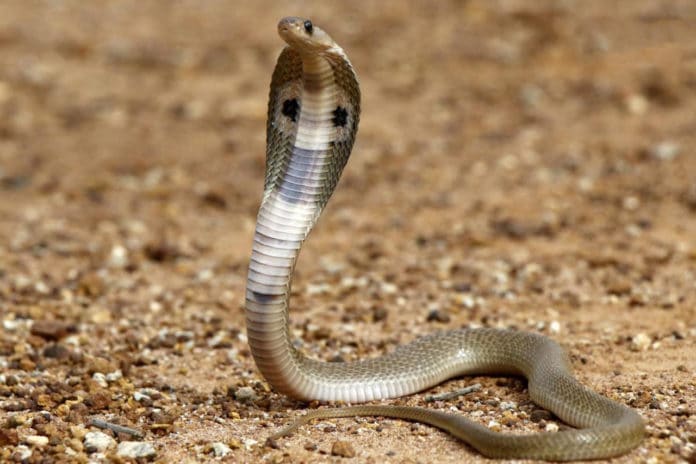Snakebite envenoming is a severe and neglected tropical disease that kills~100,000 people yearly. High-quality, a genome-enabled comprehensive portrayal of toxin genes will encourage the development of effective recombinant antivenom.
Now, scientists from the SciGenom Research Foundation (SGRF), India, AgriGenome Labs, India, MedGenome, India/USA, SciGenom, India, and Genentech, in collaboration with a team of international scientists, decoded the genome of a high-quality genome of the highly venomous, medically necessary Indian cobra (Naja naja).
Using a combination of cutting-edge genomic technologies, the authors have assembled the most contiguous genome of this iconic venomous snake. They found almost 19 essential toxin genes are present in Cobra’s venom glands.
Dr. Sekar Seshagiri, President, SGRF, former Staff Scientist at Genentech, and lead study author said, “Targeting these 19 specific toxins using synthetic human antibodies should lead to a safe and effective antivenom for treating Indian cobra bites. Currently, antivenom is produced by immunizing horses with extracted snake venom and is based on a process developed well over 100 years ago. This process is difficult and suffers from a lack of consistency leading to varying efficacy and serious side effects.”
Dr. R. Manjunatha Kini, Professor, National University of Singapore (NUS), Singapore, and an author on the study said, “It is about time we modernize antivenom development by leveraging genomics, recombinant protein expression, and synthetic antibody development technologies. The Indian cobra genome and the catalog of target toxins are a blueprint needed to do this. For the first time, we now have a full list of venom-relevant toxin genes of the Indian cobra.”
Dr. George Thomas, Chief Operating Officer, AgriGenome Labs, India said, “The Indian cobra is the first of the ‘big four’ deadly snakes to be sequenced. This is a significant step towards understanding its venom components, and it will effectively change the way antivenom is developed. This study has provided a very high-quality reference genome that will assess the Indian cobra genetic diversity possible and practical. It will be an essential resource for the conservation of this revered and feared Indian snake.”
Dr. Kini said, “Obtaining the genomes and the venom gland genes from the other three of the ‘big four’ and the deadly African snakes such as the black mamba, carpet viper and spitting cobras is the logical next step. It will provide a complete platform for developing a safe, universal antivenom for snakebite victims all over India, Africa, and other neighboring countries.”
These developments, along with the insights gained from genome sequencing as reported in Nature Genetics, will help develop better antivenom that can end the snakebite crisis.
